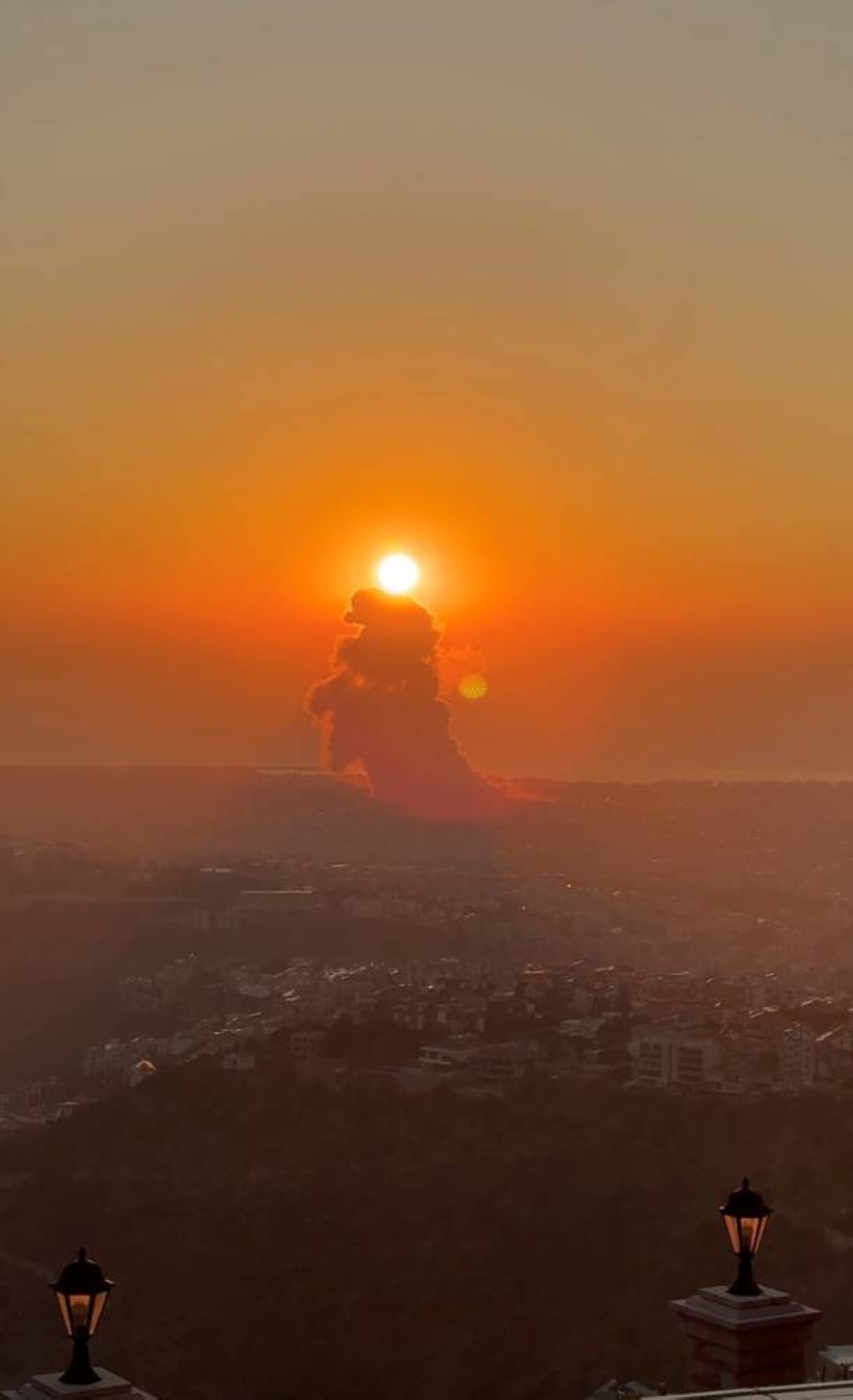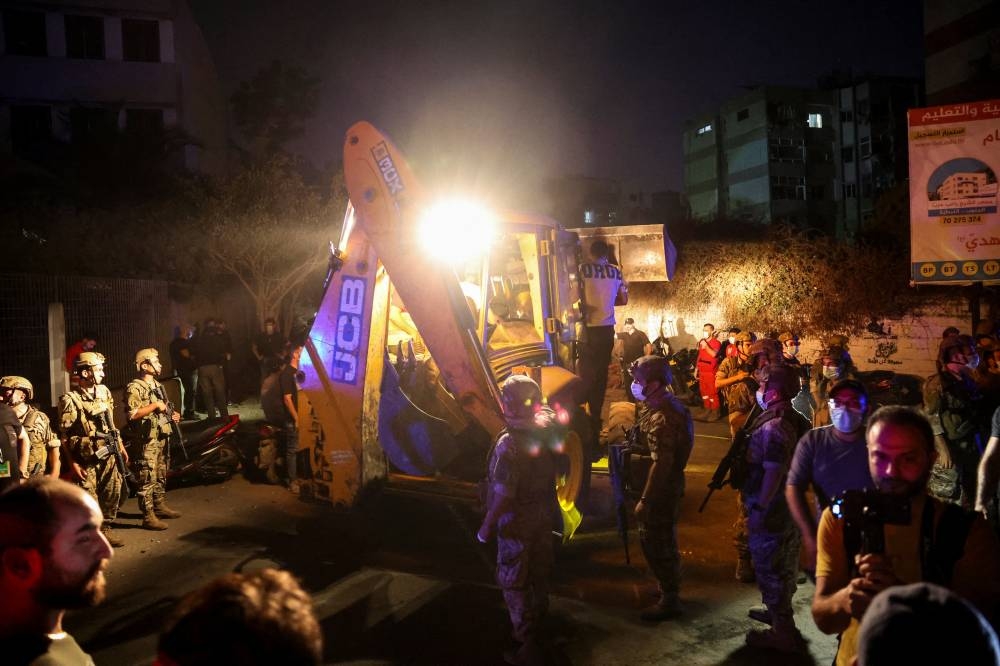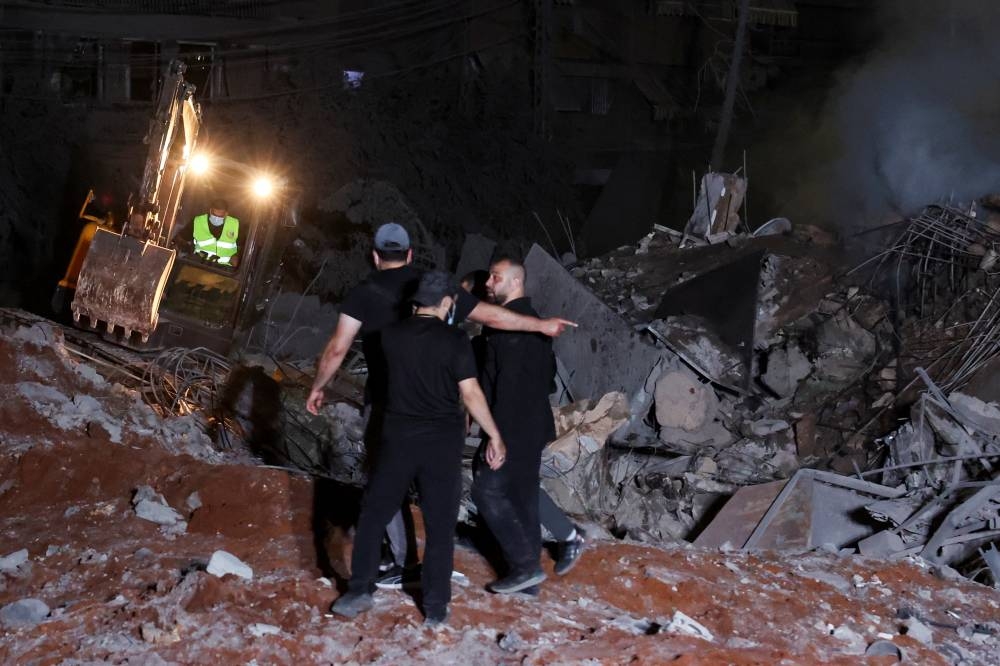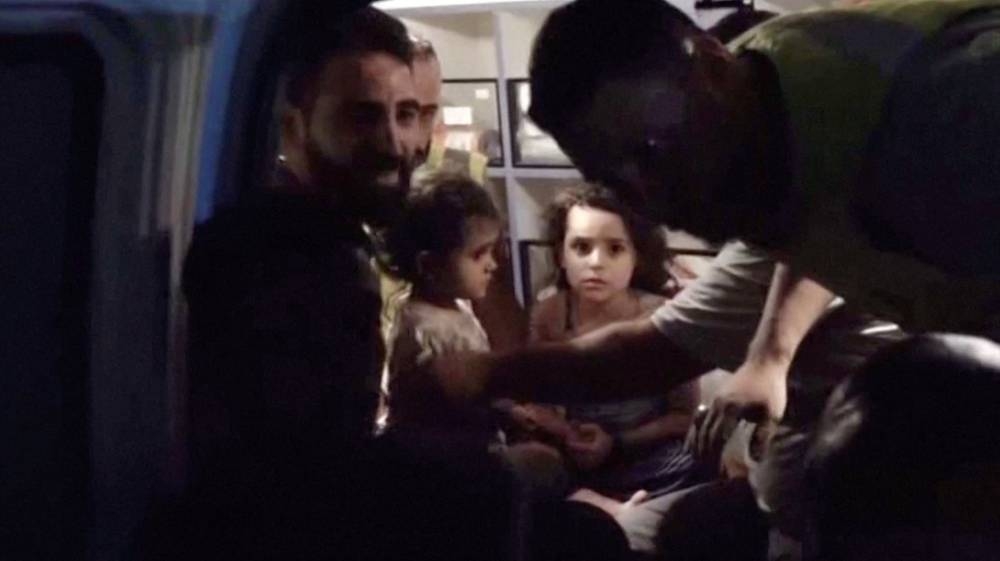Israel conducted a wave of air strikes on the south of Lebanon's capital Beirut on Friday that it said targeted Hezbollah's headquarters, warning of more to come as it told civilians to leave the densely populated neighbourhood.
Friday's strikes sent huge clouds of smoke soaring above the area and were heard across the Mediterranean city, sparking panic in the residential area that has been the Iran-backed movement's main bastion for decades.
The order to evacuate, made by Israeli army spokesperson via X, told residents to get at least 500 meters away from three specific buildings in the area. It was the first announcement of its kind for the densely populated neighbourhoods south of Beirut.
A source close to Hezbollah told Reuters its head Sayyed Hassan Nasrallah was alive. Iran's Tasnim news agency also reported he was safe. A senior Iranian security official told Reuters Tehran was checking his status. Hezbollah's media office said that there was no truth to any statements surrounding the Israeli strikes, but did not say anything about the fate of the group's leader.
In New York, a senior Israeli official told reporters that senior Hezbollah commanders were the target of Israel's strike on the central headquarters on Friday but it was too early to say whether the attack took out Nasrallah.
Lebanon's health ministry said there were two dead and 76 wounded from the Israeli strikes, describing it as a preliminary toll.
Hezbollah's al-Manar television reported four buildings were destroyed and there were many casualties in the multiple strikes, which marked a major escalation of Israel's conflict with the heavily armed Hezbollah.
Al-Manar's live feed showed search and rescue teams scrambling over concrete and protruding metal, with a correspondent for the TV station saying the attack had left several large craters and damaged many surrounding buildings.
Israel has struck the Hezbollah-controlled southern suburbs of Beirut, known as Dahiyeh, four times over the last week, killing at least three senior Hezbollah military commanders.
Friday's attack was far more powerful, with multiple blasts shaking windows across the city, recalling Israeli airstrikes during a war with Hezbollah in 2006.
Lebanese Prime Minister Najib Mikati said the attack showed Israel did not care about global calls for a Lebanon ceasefire.
Iran's embassy in Lebanon said on X that the strike represented a dangerous game-changing escalation that would "bring its perpetrator an appropriate punishment."
They were by far the fiercest strikes to hit Beirut since Israel shifted its focus from the war in Gaza to Lebanon this week, pounding Hezbollah strongholds around the country and killing hundreds of people.
Hezbollah started fighting Israeli troops along the Lebanon border a day after Hamas staged its unprecedented attack on Israel on October 7.
"Oh my God, what strikes. I felt like the building was going to collapse on top of me," said Abir Hammoud, a teacher in her 40s who lives in the southern suburbs of Beirut.
Ahmad Ahmad, in his 60s, said he fled his house in the southern suburbs after the strikes, which he said felt "like an earthquake".
A source close to Hezbollah said the strikes levelled six buildings, and according to a preliminary toll, six people were killed and 91 wounded.
After the Beirut strikes, Hezbollah said it had fired more rockets into Israel "in defence of Lebanon and its people".
The UN has repeatedly condemned the sharp escalation of violence in Lebanon.
"We are witnessing the deadliest period in Lebanon in a generation, and many express their fear that this is just the beginning," the UN humanitarian coordinator in Lebanon, Imran Riza, said.
In Israel, too, many were weary of the violence.
"It is incredibly exhausting to be in this situation. We don't really know what's going to happen, there's talk of a ground offensive or a major operation," said Lital Shmuelovich, a physiotherapy student.
Diplomats have said efforts to end the war in Gaza were key to halting the fighting in Lebanon and bringing the region back from the brink of all-out war.
But despite months of mediation efforts, a Gaza ceasefire remains elusive.
Region
Israeli airstrikes rock Beirut
Two dead and 76 wounded from the strikes, Lebanon's health ministry says

Smoke rises above buildings in Beirut, as seen from Beit Mery, Lebanon Friday, in this still image obtained from social media video. CIELA.TRAVELS VIA INSTAGRAM/via REUTERS

Members of the military gather after an Israeli strike, amid ongoing cross-border hostilities between Hezbollah and Israeli forces, in Beirut's southern suburbs, Lebanon late Friday. REUTERS

An excavator operates at the site of an Israeli strike, amid ongoing hostilities between Hezbollah and Israeli forces, in Beirut's southern suburbs, Lebanon Friday. REUTERS

Children that were rescued from the rubble following an Israeli strike sit inside an ambulance, in Beirut, Lebanon Friday, in this still image obtained from handout video. AL MANAR/Handout via REUTERS
